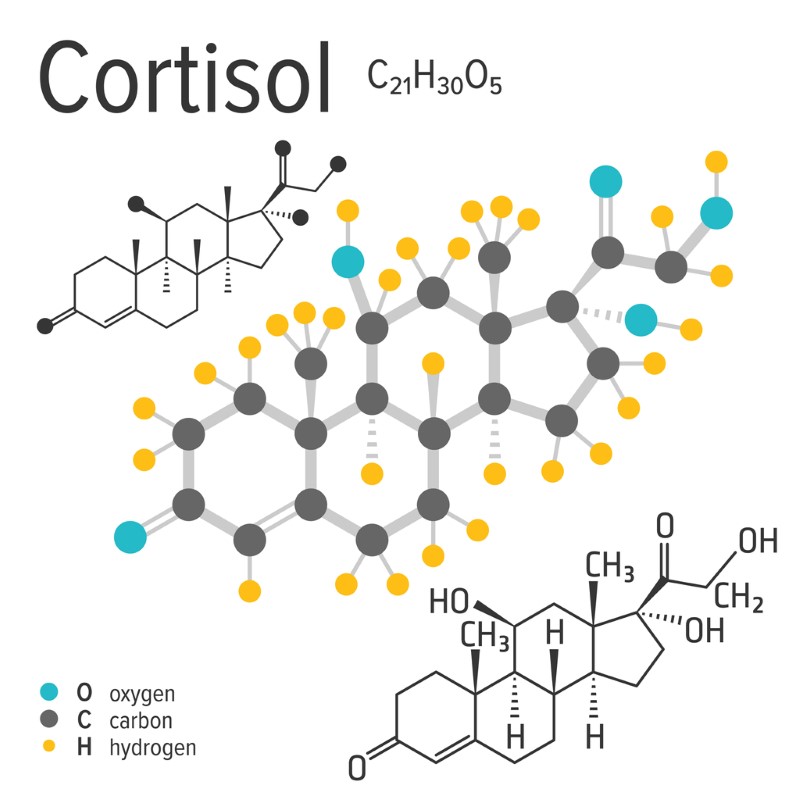Fasting 101 – Part 7 – Cortisol
Share
Like always, here’s a recap. Fasting is not starving. It’s way different. Zero calories and almost zero calories are not the same.
Many other myths were debunked in Part 1. Part 2 was about the wonderful things your body does, like perform autophagy, which is basically the body’s own recycling system. In this process cells find damaged, weakened cells, ‘eats’ them to become bigger or stronger. Part 3 covered something called resting where your focus is on resting your digestive system (which is exactly what fasting is). In Part 4, types of fasting were covered. Part 5 was all about the human growth hormone, HGH. It is a miracle worker! Part 6 was a reminder that you’ve come pretty far. Don’t give up now! Let’s keep it going!
In Part 5, the topic “cortisol” was promised BUT we skipped it to help readers remember not to overdo it over the holidays. It’s hard to get back on track once you come off. If you missed that, you can find it here.
In this article, cortisol will be covered. It is just as important as HGH. You can think of it as the stress hormone. It is activated when the body feels some level or type of stress. Any stress…including fasting. Yes, fasting (or resting the digestive system for reasons such as healing) can cause undue stress on the body. For instance, you have decided that you no longer want to eat processed sugar anymore. You better believe your body will respond! It will hate you…but not forever.
So what actually happens when you decide to live a new eating lifestyle and how does it affect cortisol…and why do you care?
Remember, cortisol is also known as the stress hormone. When the body stresses, the brain releases one hormone to trigger the pituitary gland to release another. Once the adrenal glands get the signal from the hormones the pituitary gland released, then cortisol is released. As the levels of cortisol increase, they begin to block the hormones from the pituitary glands and the brain (these hormones are called the adrenocorticotropic and corticotrophin-releasing hormones respectively). Less of those hormones mean less cortisol and both continue to decrease until all systems stop producing these three hormones.
When the cortisol is released, the body is flooded with glucose which provides an immediate energy source if needed. Let’s just say fight or flight has been turned on and in either case, you are ready. With the stresses of life and the stress of deciding to eat right, your body may be overloaded with cortisol AND glucose. (You can read more about glycogen and glucose here – https://vilifeandstyle.com/fasting-101-part-1/) With too much glucose, your blood sugar levels are increased. Theoretically, this can increase the risk of type 2 diabetes. The main goal of cortisol is to prevent the effects of insulin, making the cells insulin resistant. When the levels of cortisol are high, the body will stay in a general insulin-resistant state. Over time, the pancreas will struggle to keep up with the high demand for insulin, glucose levels in the blood will remain high, the cells will not be able to get the sugar they need, and the cycle will continue.
Another issue with remaining in a high-stress state is weight gain. The release of cortisol and the increase of glucose will cause your cells to starve for insulin. With your cells in an insulin-resistant state, they will send hunger singles to the brain and prompt you to eat, and eat, and eat, and eat. Until this vicious cycle ends, your body will want to eat as your cells continue to give off this signal. This will cause you to gain weight and place yourself in danger. You’ve heard of stress eating? Well, this is why! The cells are being starved because of stress.
Our least favorite result of heightened cortisol is what it does to the visceral fat pockets throughout the body. Visceral fat cells are found under the muscles on in the abdomen and around the organs. It’s the fat that makes you look bloated or give you the spare tire look. This is the stubborn belly fat that is hard to lose. Cortisol causes fat to be stored in these areas. What’s awful about this is these fat cells have more cortisol receptors. If the body releases more of the hormone, then the cells will receive more and store more fat. This is where the name “stress belly” was derived.
Below is a shortlist of other health-related issues that prolonged periods of high cortisol levels can cause:
- rapid weight gain mainly in the face, chest and abdomen contrasted with slender arms and legs
- high blood pressure
- osteoporosis
- muscle weakness
- mood swings, which show as anxiety, depression or irritability
- increased thirst and frequency of urination
- lack of sex drive
- irregular menstrual and ovulation cycles
But there is hope. While your body may not like the effects of the decisions you are making to be a better version of you, over time, with effective stress management, you will see significant changes and even reverse the destruction caused by your former lifestyle. As a matter of fact, a healthier lifestyle and optimized diet are exactly what your body needs to manage and reverse issues caused by heightened cortisol levels. Resting from eating has SO many benefits. Who wouldn’t want to react better to stressful situations? Who wouldn’t want to handle things like a champ!
A disciplined life has so many benefits. Your body gets to heal, you can look 10-20 years younger, the longevity of your life will increase, AND you can have a flatter belly! To top all of that, your body will manage stress so much better. It is more than worth it!
There is so much information to share on the benefits of resting your digestive system (or fasting). If there is a specific topic you would like covered, send us a message on Facebook @vilifeandstyle or email Keiyia at keiyia@rkgconsultinggroup.com. For now, the next topic will cover working out in a fasted state.




